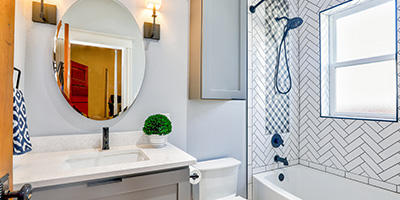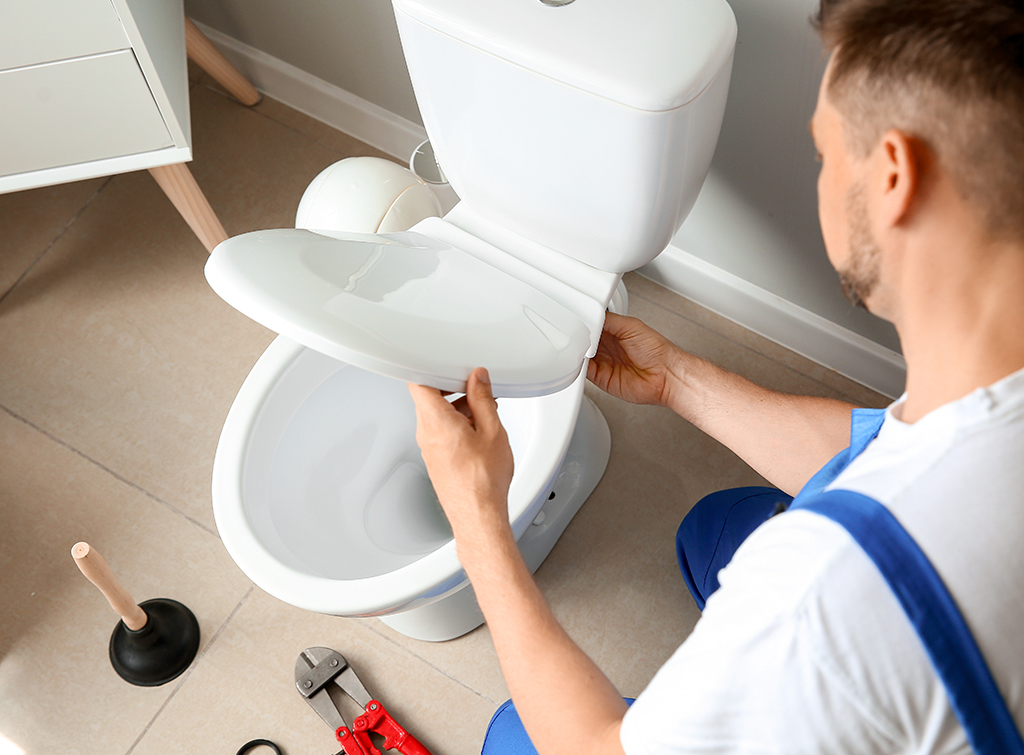Mastering Bathroom Plumbing: Essential Tips for New Homeowners
Mastering Bathroom Plumbing: Essential Tips for New Homeowners
Blog Article
We have stumbled upon this article involving 11 Must-Read Tips for Plumbing a New House down the page on the web and accepted it made good sense to relate it with you here.

For brand-new property owners, understanding and preserving bathroom plumbing can save both money and time by preventing costly concerns down the line. Right here are some crucial restroom plumbing pointers to help you keep everything running smoothly.
Get Ready For Cold Weather
Shield your pipelines from cold throughout cold weather by shielding pipelines in unheated locations like cellars, attic rooms, and garages. Throughout severe cool, allow cold water drip from taps offered by exposed pipelines to help stop freezing.
Schedule Routine Maintenance
Take into consideration organizing annual inspections with an accredited plumber. They can spot issues that you could miss, such as surprise leakages or damage on pipes and fixtures. Normal maintenance assists extend the life of your pipes system and can protect against emergencies.
Acquaint Yourself with the Main Shut-Off Shutoff
Knowing where the major water shut-off valve is located in your home is critical. This permits you to promptly switch off the supply of water in case of major leakages or throughout plumbing emergencies, protecting against considerable water damage.
Regularly Check for Leaks
Little leaks can bring about huge troubles. Routinely check under sinks, around bathrooms, and near pipes fixtures for any indicators of leakages. Look for wetness, little drips, or rust. Capturing and repairing leakages early can prevent more significant damages and conserve water.
Maintain Your Hot Water Heater
Ensure your hot water heater is set to a suitable temperature level (typically around 120 levels Fahrenheit) to stop scalding and reduce power usage. Flush the container every year to remove sediment accumulation, which can reduce the performance and life-span of your heating unit.
Update Your Fixtures
If your home has older components, take into consideration updating to a lot more efficient models. Modern commodes, showerheads, and faucets are developed to utilize less water while supplying good pressure, which can significantly decrease your water expense and environmental footprint.
Beware with Do It Yourself Pipes Repairs
While it's tempting to deal with all home fixings on your own, be cautious with plumbing. Some concerns could need expert knowledge, specifically if they include primary water lines or sewage system repairs. Working with an expert can sometimes be more cost-efficient than do it yourself, especially if it stops more damage.
Don't Disregard Slow Drains
If your sink or bath tub is draining gradually, it's commonly a sign of an obstruction forming. Addressing this early can avoid a complete blockage. Use a plunger or a plumbing technician's serpent to clean out debris. Avoid making use of chemical drainpipe cleansers as they can damage your pipes over time.
Know What Not to Flush
Toilets are not waste disposal unit. Prevent flushing anything other than toilet tissue and human waste. Products like wipes, feminine health products, and cotton swabs ought to be disposed of in the trash to prevent obstructions and drain backups.
Install Strainers in Drains
Place strainers in your sink and bathtub drains pipes to catch hair and various other particles prior to they enter your pipes system. Cleansing the filters routinely will assist stop accumulation and keep water flowing freely.
Verdict
Understanding and keeping your home's washroom plumbing can prevent several typical issues. By following these essential pointers, you can ensure your restroom remains functional and effective, conserving you money and time over time.
Essential Plumbing Tips for Homeowners: Keep Your Pipes Flowing Smoothly
As a homeowner, understanding the basics of your plumbing system can save you time, money, and a lot of headaches. Plumbing issues can range from minor annoyances like dripping faucets to major problems like burst pipes that cause significant damage. This guide provides essential tips to help you maintain your plumbing system and tackle common issues.
Understanding Your Plumbing System
Supply System: Brings fresh water into your home from a municipal source or a well. Drain-Waste-Vent System: Removes wastewater and vents sewer gases outside. Fixtures and Appliances: Includes sinks, toilets, showers, dishwashers, and washing machines. Basic Maintenance Tips
Regular Inspections: Periodically check for leaks, corrosion, and other signs of wear and tear. Look under sinks, around toilets, and near water heaters. Know Your Main Shut-Off Valve: In case of a major leak, you’ll need to shut off the water quickly. Ensure everyone in your household knows where the main shut-off valve is located. Prevent Frozen Pipes: In cold climates, insulate exposed pipes and let faucets drip during extreme cold to prevent freezing. Use Strainers: Install strainers in sinks and tubs to catch hair, food particles, and other debris that can cause clogs. Common Plumbing Issues and Solutions
Clogged Drains:
Prevention: Avoid pouring grease down the drain and use drain screens to catch debris. DIY Fix: Use a plunger or a plumbing snake to clear minor clogs. For stubborn clogs, a mixture of baking soda and vinegar can sometimes help. Leaky Faucets:
Prevention: Replace washers and seals regularly. DIY Fix: Turn off the water supply, disassemble the faucet, and replace worn parts.

Click Here Report this page